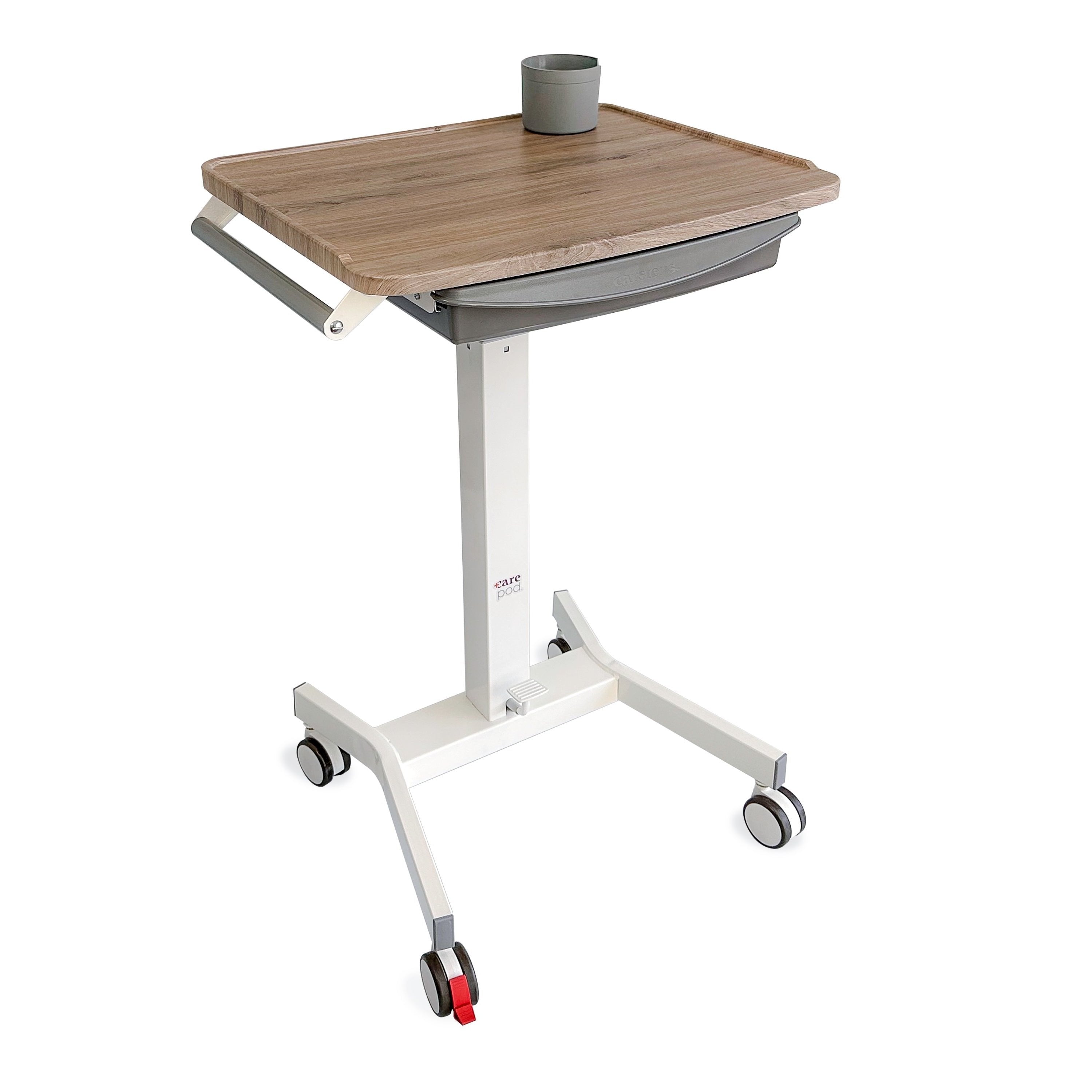Nursing school is an exciting, albeit taxing, period in any aspiring nurse’s early career. Ultimately, this experience introduces young medical professionals to the dynamic working environment of a modern hospital or clinic. Within this chaos, nursing students often struggle, which manifests in poor sleeping schedules, poor eating habits, mental health problems, and more.
Unfortunately, some of the hardships experienced during nursing school are essential for preparing students for real-world situations. However, if you want to set yourself up for more success early on, we have a few helpful tips on how to get—and stay—organized in nursing school. Read on to learn more about optimizing your lifestyle, habits, and medical storage systems to ensure a less-stressful experience.
Relearn Your Studying Habits
Individuals accepted into prestigious nursing schools and programs already possess exceptional studying habits and academic work ethics. However, the methods for effectively studying medical information at nursing school are completely different—and more complex—compared with any prior level of education in your life.
For example, most course loads are immense and often require hours of daily studying to retain essential information properly. This is especially true for pharmacology courses. This is because standard assignments include a seemingly endless list of long medication names, drug interactions, common side effects, proper nurse intervention procedures, and more.
Therefore, the best way to study while in nursing school is by compressing your entire course load down into smaller sessions. For the example of pharmacology, you could learn just the medication names that share a suffix (i.e., the suffix “-olol,” indicating a generic beta-blocker). Then, you could move on to learning another set of medication names with a different shared suffix. This is a quick and effective method for retaining complex information without becoming overwhelmed.
More importantly, scheduling study sessions on a regular basis creates reinforced habits that will only improve and translate into your work. By implementing this studying technique, you can organize many aspects of your life to become more productive.
Invest in Intuitive Organizational Supplies
While in nursing school and throughout your career, your organizational supplies play an essential role in your daily life and responsibilities. Charting, documenting, and digitalizing records are all vital—albeit time-consuming—activities that you can reduce with proper medical equipment and organization solutions.
Items such as clipboards, document filing systems, chart ring binders, and workstations may seem insignificant compared to the rest of your schooling experience. Nevertheless, they help enhance efficiency and overall organization when completing your academic duties.
For instance, fast-paced environments can lead to more accidents throughout the day. Simply investing in more durable binders and binder accessories can better contain and protect important assignments, charts, and academic documents. Synthetic plastics and other lab-produced materials, which are often found on quality nursing clipboards and binders, are significantly more reliable than traditional wood alternatives.
Despite innovative healthcare technology, nurses still require quality medical chart ring binders for storing physical paperwork. Ultimately, students should find products designed for their field to ensure reliability, effectiveness, and convenience. Alternatively, nursing schools can consider supplying their students with items similar to these upon admittance.
Create a Healthier Lifestyle
Regardless of your discipline, it is very easy for students to develop unhealthy lifestyles while at school. These lifestyle habits are detrimental to your ability to stay balanced and organized, whether due to stress over course-load requirements, external factors, or a combination.
The most common negative practices include inconsistent sleeping schedules and unhealthy eating patterns. But as you will undoubtedly cover during your studies, proper rest and nutrient consumption are key to staying mentally and physically sharp, especially during periods of extreme stress.
Get Enough Sleep
Commit to a regular sleeping schedule that guarantees at least eight hours of sleep each night. You might consider using an application or device to track your sleep to help build this habit. And remember that one of the factors that contributes to healthy sleeping patterns is your surrounding setting. A disorganized surrounding doesn’t promote deep sleep, so staying organized is paramount.
To foster quality sleep, utilize your new organization solutions to create a more orderly and productive environment. Your improved organization will lead to improved rest, which will, in turn, translate to better organization within your academic, professional, and personal life.
Eat Well
Unlike creating a solid sleeping schedule, committing to a healthier diet can prove quite tricky. However, it’s easy to feel burnout at school if you aren’t fueling your body with the right nutrients. Furthermore, a lack of proper nutrition can weaken your immune system, which can be debilitating to aspiring healthcare professionals and a health concern for everyone involved.
Consider implementing a healthy food plan to both enhance your physical well-being and optimize time spent on your daily meals. Whole grains, lentils, beans, various fish, and other superfoods are great sources of natural energy to keep you focused and relaxed throughout the day. However, it’s more important to prioritize a regular eating schedule rather than the specifics of your diet. Ensure you eat three proper meals each day to maximize your health. And above all else, drink 8–12 cups of water daily to avoid complications associated with dehydration!
Utilize School Resources
The silver lining amidst the chaos is that nursing school offers access to vast and helpful resources. These resources include your institution’s collection of academic documents and books, counselors, student help centers, faculty, and professors. Unfortunately, many individuals don’t take advantage of these aids while attending school.
We encourage you to not take your resources for granted. Experienced individuals designed them specifically to improve your academic organization, abilities, and performance. Plus, nursing school is the ideal time in your career to ask questions and learn from others.
Finally, you should also invest in your peers as a resource. Socialize with your fellow students, as it’s essential to mental health to have friends for rest and recreation in between your collectively intense schedules. They also may prove valuable through collaboration later down the line.
Overall, the best ways to get and stay organized in nursing school relate to how well you treat your body and mind. Whether it’s maintaining better lifestyle habits, improving your study methods, investing in better tools and supplies, or reaching out to others for help, these actions can vastly enhance your academic and personal life.







